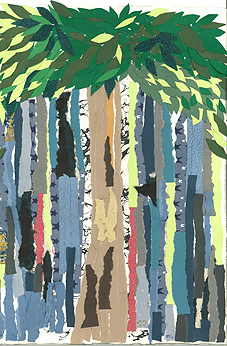The Fault Lines of Hindi and Urdu
Sanjay Kumar
However, all is not yet lost and there seems to be a new ray of hope. Contemporary creative writers in both Urdu and Hindi are turning more and more towards the spoken idiom, the middle standard. This way, they avoid explicit Perso-Arabic and Sanskrit vocabulary and use words and idioms in popular use, blurring the distinction between Hindi and Urdu. I will cite here a few examples from contemporary Urdu poets:14 “Roti bankar aa jata hai, Chhand mere chappar ke upar. Lal pari mere bacchon ko, Ambar thapki de jati hai.“ (Ambar Bahraichi) In the shape of a roti, the moon comes over my thatched roof, The red fairy visits and comforts, Ambar, my children. “Dukanein sahar mein sari nayi hain, Hamein sab kuch purana chahiye tha.“ (Shuza Khabar) All the shops in the city are new, I wanted everything old. “Suna hai gaon ke peepal ke paas ek patthar, Bahut dino se mera intezaar karta hai.“ (Khursi Akbar) I have heard that a stone under the peepal tree in the village, Has been waiting for me for a long time. The significance of this moment should not be lost on us. We need to seize it to make a new beginning towards re-imagining our literary pasts in order to refashion our literary present and future. I feel that it is in this context that the call given by Satya Mohanty becomes both relevant and urgent. I will end this piece with a she’r from Nazir Akbarabadi: “Kaash Sheikh au Barahman, mil kar karein kuch rok tham, Varna Bharat par koi, bhaari azaab aane ko hai.“ If only Sheikh and Brahman could come together and do something, Or else a grave calamity is to befall Bharat. Pages 1 2 3 4 5 6 7 8 |
Essays in this Forum
Rethinking the Global South
by Mukoma Wa Ngugi From Indian Literature to World Literature: A Conversation with Satya P. Mohanty by Rashmi Dube Bhatnagar and Rajender Kaur Asia in My Life by Ngugi wa Thiong'o The Global South and Cultural Struggles: On the Afro-Asian People’s Solidarity Organization by Duncan Mceachern Yoon The Fault Lines of Hindi and Urdu by Sanjay Kumar Reframing Colonialism and Modernity: An Endeavour through Sociology and Literature by Gurminder K. Bhambra Varieties of Cultural Chauvinism and the Relevance of Comparative Studies by Tilottoma Misra Literature to Combat Cultural Chauvinism: A Response by Shivani Jha Is There an Indian Way of Thinking about Comparative Literature? by E. V. Ramakrishnan Modernity and Public Sphere in Vernacular by Purushottam Agrawal West Indian Writers and Cultural Chauvinism by Jerome Teelucksingh Oral Knowledge in Berber Women’s Expressions of the Sacred by Fatima Sadiki |
